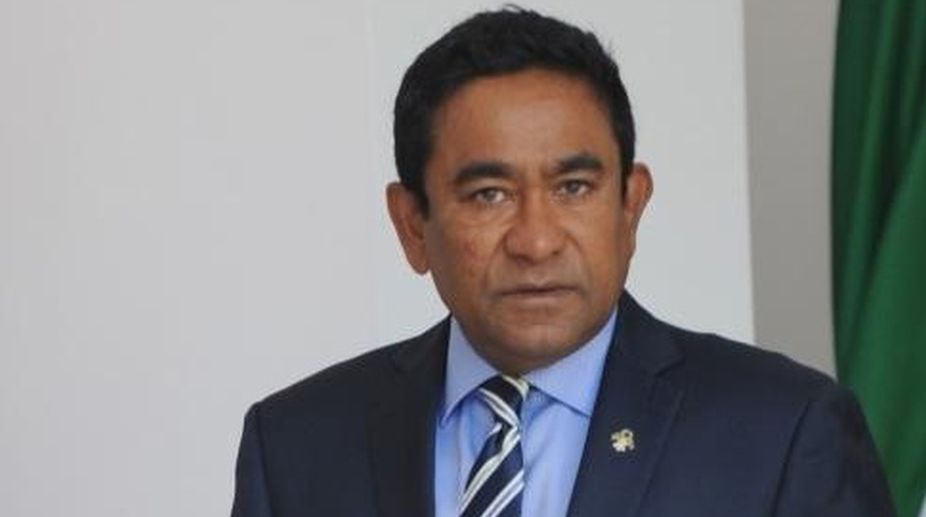Triptii Dimri’s Maldives vacay includes boats, bikes and sunset
Triptii Dimri has taken off to The Maldives for another fun vacay, and she has been dropping some excerpts from her most recent trip on social media.

(Photo: IANS/File)
The Maldives is in crisis yet again. And the striking feature of the 19-month prison term awarded to the former President, who ruled the Indian Ocean archipelago state with a strong hand from 1978 to 2008, appears to have been driven by a relatively secondary construct. Maumoon Abdul Gayoom has been sentenced for not cooperating with the police investigation. This decidedly overshadows the primary charge that he had plotted to overthrow the government of Yameen, his half-brother. As it turns out, the allegation for which he has been put behind bars is relatively weak ~ his failure to hand over his mobile phone to the investigators. Nonetheless, the court order makes Gayoom the second Head of State to be jailed under President Yameen Abdul Gayoom’s rule.
The familial discord has thus impinged on the helm of governance. In terms of personalities, the sentence has been fairly sweeping and is critical in itself. Two Supreme Court judges, Abdulla Saeed and Ali Hameed, who was arrested with Gayoom, were also given the same sentences for the same offence. The subtext being that tainted judges preside over the archipelago’s apex judiciary. Saeed and Hameed had previously been given similar jail sentences for allegedly influencing lower court decisions. Clearly, the turmoil in the Maldives since February this year has affected both the presidency (executive) and the judiciary, indeed the two arms of democratic governance.
Advertisement
Politically, the turmoil must be particularly acute for a tiny nation, that boasts its tourist resorts. The instability at the helm of governance is bound to affect this thriving segment of the economy, indeed the bedrock of Maldives’ growth and development. The multi-party democracy, that was introduced in 2008 after terminating Gayoom’s 30-year rule, has been shaken to its foundations in the midst of the joust within the presidential palace. Yameen, who was elected in 2013, has negated the democratic gains. Mohamed Nasheed, who was the country’s first freely elected President in 2008, was earlier given a 13-year sentence in a trial that was widely criticized for violations of the due process. He was granted asylum in Britain when he went there on leave from prison for medical treatment.
Advertisement
The former vice-president, Ahmed Adeeb, two former defence ministers, a Prosecutor-General and Opposition legislators are among those who have been imprisoned during Yameen’s tenure. It is hard not to wonder whether the judiciary tends to kowtow to the will of the incumbent President, in effect to intensify the instability. This is borne out by the fact that all the trials have been criticized for lack of fairness. With all his potential opponents either in jail or in exile, President Yameen is preparing to run for re-election in September, virtually unopposed. The Maldives is no stranger to bouts of emergency; an uncontested victory can only reaffirm the intrinsic fragility of democracy, reinforced by a pliant judiciary.
Advertisement